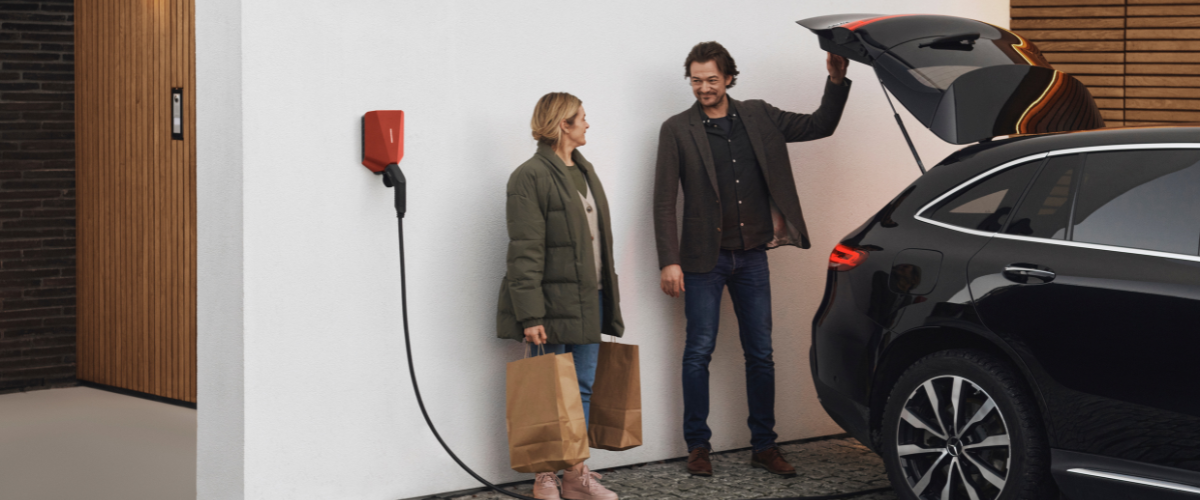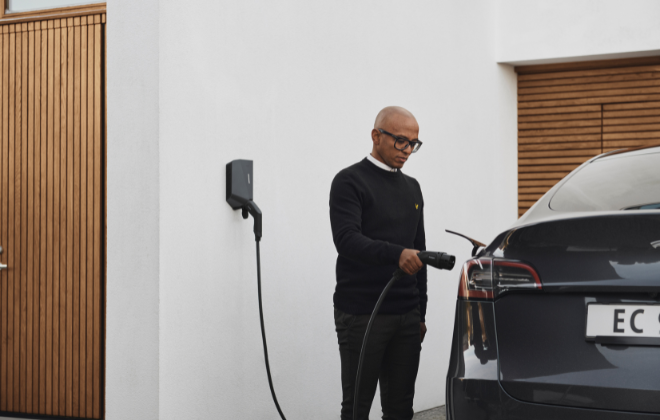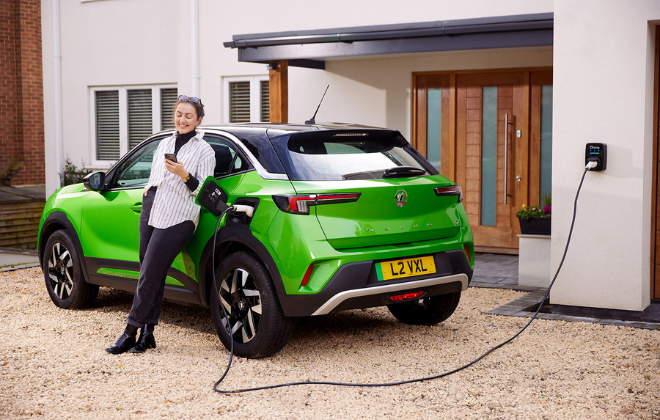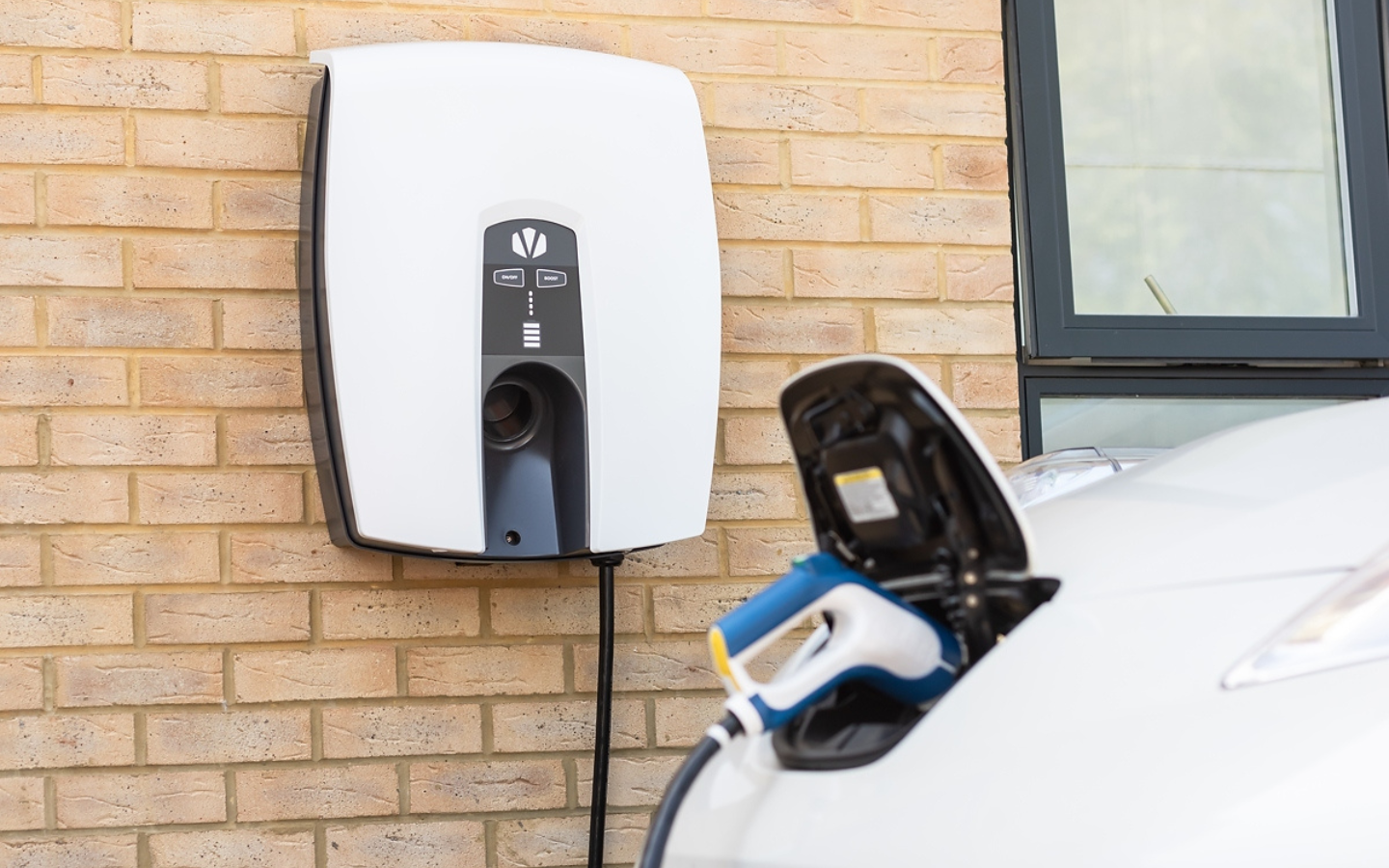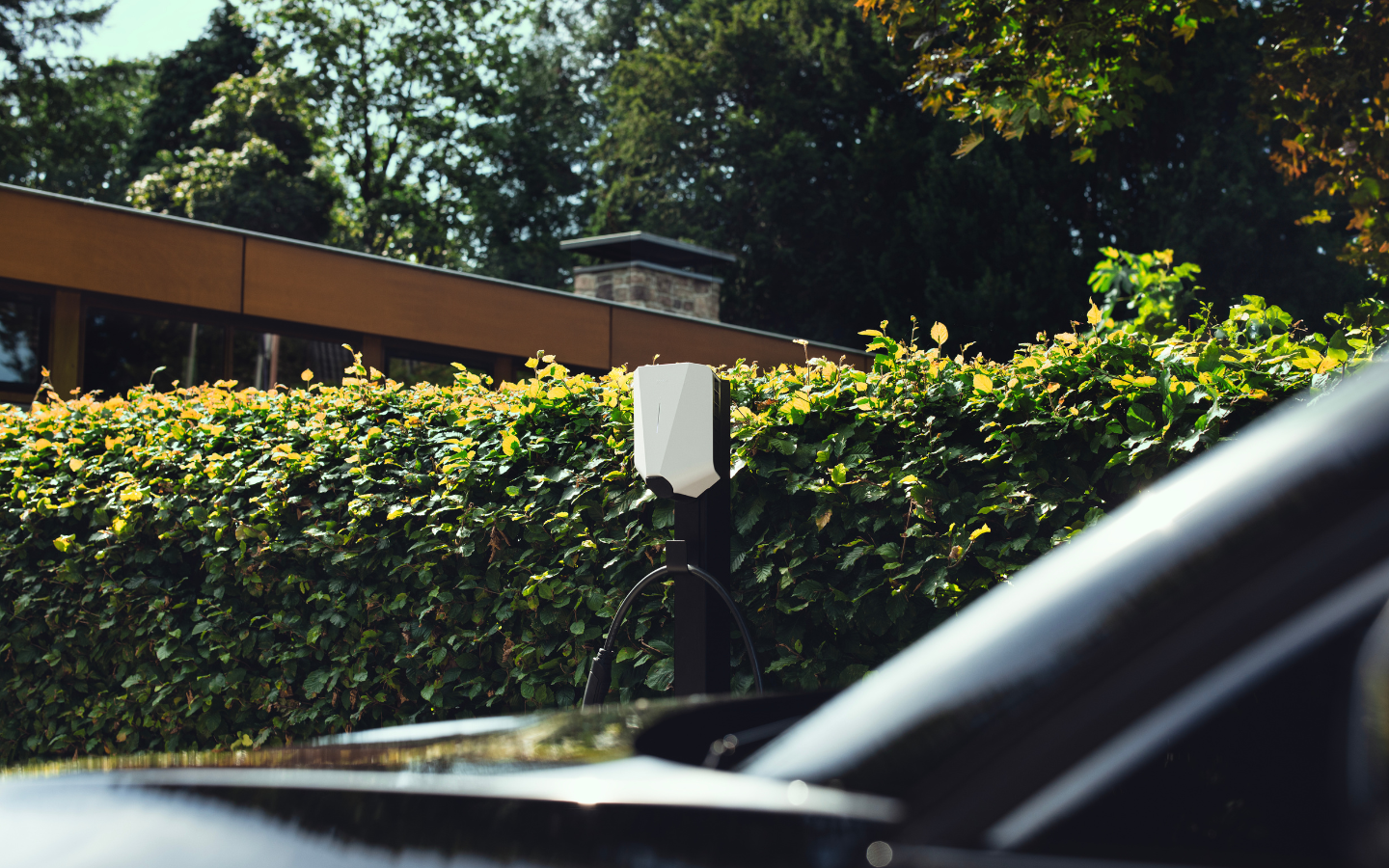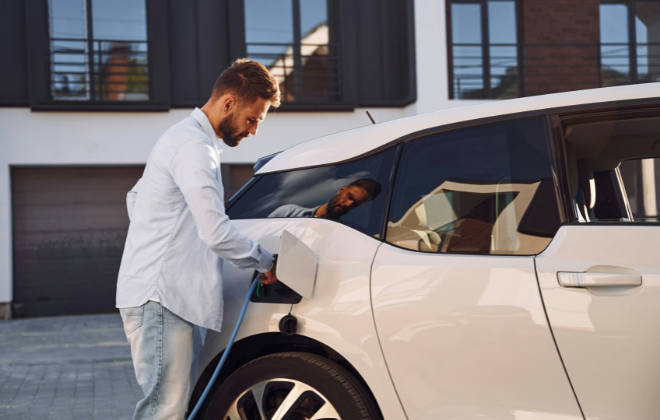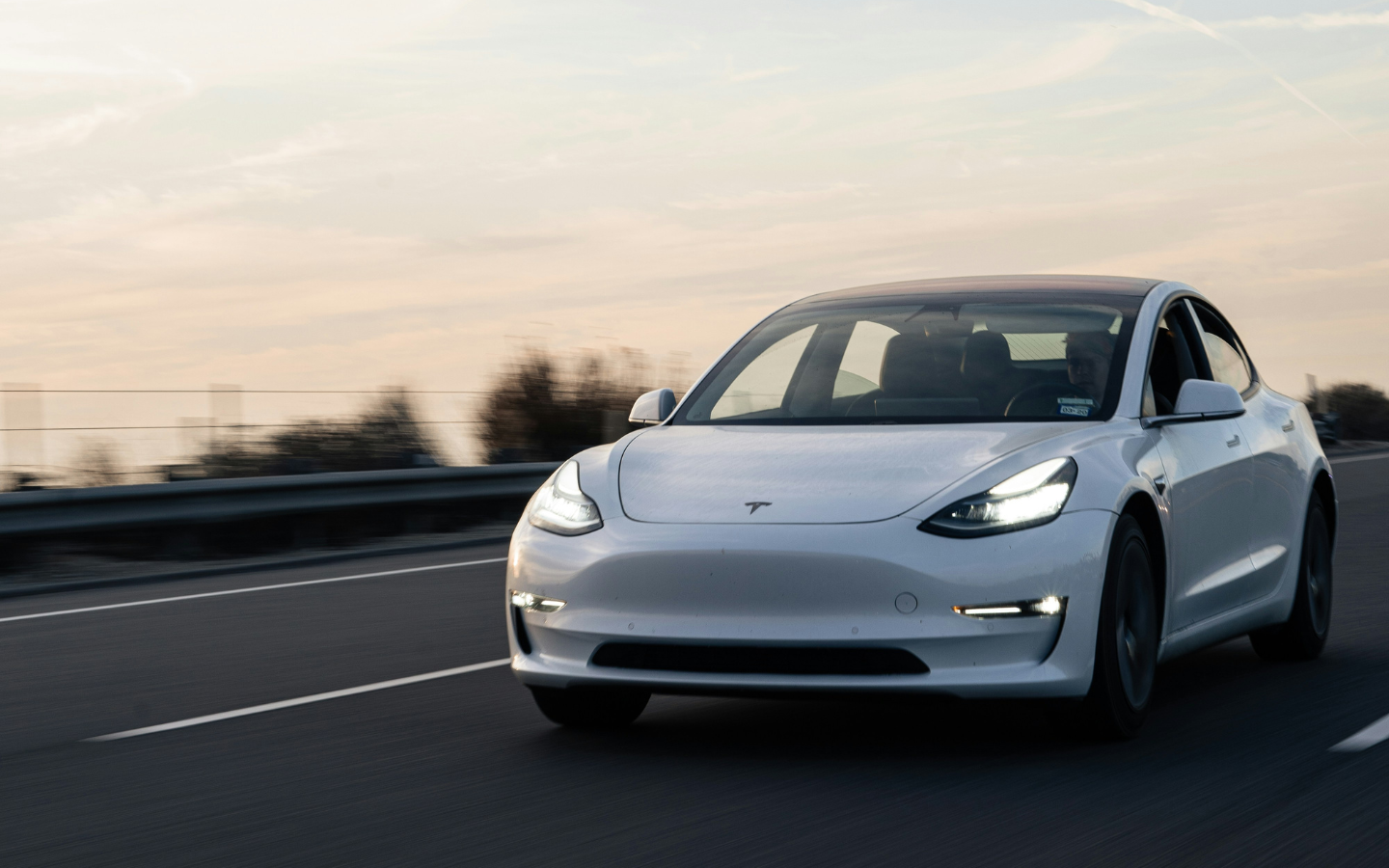

How much does it cost to run an electric car?
One of the most enticing aspects of electric car adoption is the potential to reduce costs when compared to traditional petrol and diesel powered cars.
However, despite the surge in electric vehicles in the UK (approximately 1,500,000 to date), many potential buyers are still unsure about the overall running costs of an EV compared to a petrol or diesel car.
In this blog, we’ll break down all the expenses of driving an electric car and answer the question – How much does it cost to run an electric car in 2025?
How much does it cost to charge an electric car?
The cost to charge an electric car depends on when you charge and what charger you use. For example, public EV charging points are typically more expensive than home EV chargers – especially if you are using rapid or ultra-rapid EV charging stations.
Home EV charging during off-peak hours or with an electricity tariff is also significantly cheaper than charging your electric car at home throughout the day.
We’ll take you through the individual costs for public, home and work EV charging.
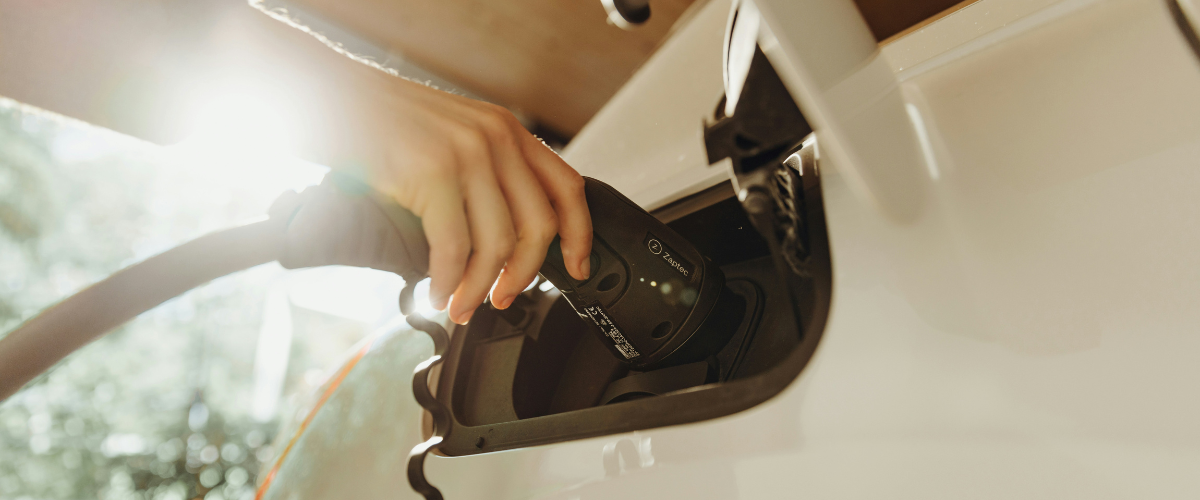
What is the cost of charging an electric car in public?
The cost of charging an electric car at public EV charging points fluctuates significantly already, and these prices are expected to rise because of the ongoing challenges in the energy market, too.
That said, currently, the weighted mean cost for charging an electric vehicle at public charging stations stands at 56 pence per kilowatt-hour (kWh) for slow/fast chargers and 80 pence per kWh for rapid/ultra-rapid chargers, translating to approximately 14 pence per mile and 21 pence per mile.
However, different public chargers, power outputs, and networks will mean that public EV charging costs for electric cars will differ. For example, Aldi EV chargers, Tesco EV chargers and Sainsbury’s chargers have different price points for their public EV chargers.
Some EV charging networks offer subscription plans, such as BP Pulse, where you pay a monthly fee for discounted charging rates. Using EV charging network plans or RFID cards provides flexibility, especially when you’re on long journeys and need to charge your electric car on the go.
In rare cases, you may stumble across public EV chargers offering free charging sessions. However, this is uncommon nowadays.

How much does it cost to charge an electric car at home?
Charging an electric car at home with a dedicated charger is cheaper than using public charge points – and more convenient.
As such, it comes as no surprise that many electric vehicle owners primarily charge their vehicles at home, benefiting from the current electricity price of approximately 28.6 p/kWh (pence per kilowatt hour).
To demonstrate how much money you can save by charging your electric vehicle at home, we’ve collected a handful of common electric cars in the market and calculated the cost of charging the EVs at home for a full charge.
| Electric car | Battery size | Real-world range (miles) | Approx. cost to fully charge |
| Tesla Model 3 | 60 kWh | 310 real range | £16.84 |
| Volkswagen e-Up! | 36.8 kWh | 125 real range | £10.33 |
| Mini Electric | 32.6 kWh | 110 real range | £9.15 |
These figures are based on the electric car data from EV-database and the current electricity rate in the UK.
If you want to save further on home EV charging costs, other options are available. Choose a solar EV charger and charge with free solar energy, or opt for a home EV charger with advanced tariff integration.
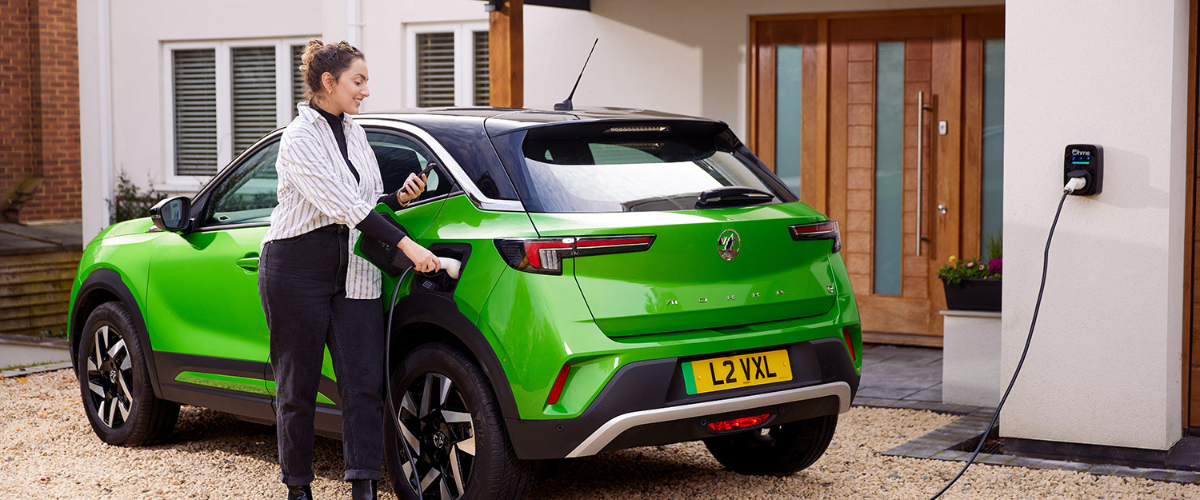
Can electricity tariffs decrease the cost of charging an electric car at home?
Yes, the electricity tariff you are on significantly determines the cost of running an electric car and how much you will pay to charge your EV at home. Many energy suppliers now offer dedicated EV tariffs, which allow you to charge your electric car at home at substantially lower rates.
For one, Octopus Energy offers an Intelligent tariff that allows you to charge at an off-peak rate of 7.5p per kWh. The caveat is that you need a compatible EV or an Ohme charger to take advantage of the advanced EV charging tariff.
Another premium EV charging tariff is the British Gas Electric Driver Tariff, enabling you to charge 8.95p per kWh between 12 am and 5 am. Unlike Octopus Energy, no matter what EV charger you have installed at home, the British Gas EV tariff works with all charge points and electric vehicles.
Many EV tariffs are now available, so browse and find the cheapest tariff for you – or feel free to call our experts at 03333 44 96 99 for unbiased advice.
How much does it cost to charge an electric car at work?
If your employer provides workplace charging for electric vehicles, it can be convenient. However, it’s important to be aware that there may be associated costs. While some companies offer free charging as a workplace benefit, others have implemented various pricing structures.
The EV charging expenses at work will vary significantly, depending on your employer’s policies, the type of charging equipment available, and your usage patterns. Some businesses may charge a flat fee per hour of charging, while others may bill you based on the amount of electricity consumed. Additionally, membership fees might be involved if your workplace is part of a more extensive charging network.
On average, workplace EV charging costs vary but is typically comparable to public charging unless your employer offers it for free.
Additional expenses of owning an electric car
Insurance costs
Electric cars typically have slightly higher insurance costs than diesel or petrol cars because of their high upfront cost and the expensive nature of repairing or replacing their unique technology, such as lithium-ion car batteries.
According to NimbleFins, the average cost of EV car insurance is around £654. However, insurance premiums vary significantly between cars, with quotes ranging from approximately £400 to well over £1,000 per year.
Nevertheless, as electric cars gain popularity, insurance expertise and options are growing, reducing electric car insurance costs.
Maintenance costs
Electric cars have fewer moving parts, don’t need oil changes, and have regenerative braking, which can reduce wear and tear. As a result, electric vehicles require less regular maintenance. This can lead to cost savings throughout the vehicle’s lifespan, compared to petrol and diesel vehicles.
Electric car tax costs (BIK, road tax)
In 2024, electric cars in the UK are not required to pay road tax (Vehicle Excise Duty) and are not subject to the expensive car supplement tax.
Read our blog if you would like to find out more about this.
Benefit in Kind (BIK) taxation on a company car is lower for electric cars than hybrid cars, and the cost saving is even more significant when compared to regular petrol and diesel cars. In the next two financial years, 2023/2024 and 2024/2025, electric car tax rates are only 2%. But it will gradually increase by 1% each year, and by the 2027/2028 financial year, it will be 5%.
Government grants and schemes for electric cars
Grants for charging infrastructure
In 2024, certain electric vehicle drivers who meet specific requirements can get a government grant that reduces the cost of getting a home electric vehicle charger by £350.
If you rent any residential property or own a flat, you can claim £350 towards installing a home charger. (You also need off-street parking and must own an eligible electric or hybrid vehicle).
If you run a business from your home and it’s officially registered there (as shown on your incorporation or VAT certificate), you can claim £350 towards getting a home charge point. You’ll also need designated off-street parking and an eligible electric or hybrid vehicle.
Grants for electric cars
The Plug-in Grant used to offer a reduction on the cost of new low-emission cars. However, starting June 2022, the Plug-In car grant unfortunately doesn’t cover electric vehicles but still offers a discount on low-emission vans, motorcycles, and other eligible vehicles.
Are electric cars cheaper to run than petrol or diesel?
Charging an electric vehicle (EV) will increase your energy bill considerably – this, unfortunately, is a given. However, your potential EV charging savings will be significantly greater since you won’t be buying petrol or diesel, which is generally more expensive than charging at home or using public charging points.
Electric cars typically have fewer maintenance costs, and currently, EV drivers pay less tax than those with a petrol or diesel vehicle, which can further reduce costs.
Although insurance may be slightly higher for electric cars than petrol and diesel vehicles, the difference isn’t substantial, and prices will likely fall in the upcoming years.
As such, electric car running costs are likely to be cheaper than a petrol or diesel vehicle.
Other cost-saving benefits of an electric car:
Free parking
Many local councils provide free parking for electric vehicles (EVs) in council-owned car parks and on-street parking. For example, Sheffield City Council offer a Green parking permit that allows free city centre parking for Ultra Low Emission Vehicles (ULEVs) that meet specified criteria.
No congestion charge
In London, electric vehicles currently enjoy an exemption from the Congestion Charge.
Exemption from the Ultra Low Emission Zone
If you drive an electric vehicle in London, you are also exempt from the Ultra Low Emission Zone charges. This means that every time you drive within the Ultra Low Emission Zone (ULEZ), you will save the daily fee of £12.50.
Conclusion
In conclusion, when considering the overall cost of running an electric vehicle compared to a traditional petrol or diesel car, several key factors come into play:
- EV charging costs: The cost to charge your electric car depends on various factors, including your vehicle’s battery size, electricity tariff, and charging method. Charging at home is typically more cost-effective than using public charging networks, especially when using an EV-specific electricity tariff, which can reduce your electricity cost.
- Additional EV expenses: Electric cars may have slightly higher insurance premiums because of their initial cost and unique technology. However, as these vehicles become more common, insurance costs are expected to decrease. Moreover, electric cars require less maintenance, resulting in long-term cost savings.
- Tax benefits: In the UK, electric cars are currently exempt from road tax and the expensive car supplement. Company car tax (Benefit In Kind) is also lower for electric vehicles, providing financial advantages for their owners until at least 2025.
- Government grants: Various government grants and schemes are available to reduce the cost of electric car ownership, including grants for installing a home EV charging point.
- Cost-saving benefits: Electric car owners may benefit from free parking in some areas and exemptions from congestion and Ultra Low Emission Zone charges in certain cities, such as London. These perks can contribute to long-term cost savings.
Summary
In summary, while there may be high initial costs associated with buying an electric car outright, the long-term savings in EV charging, maintenance, and potential tax benefits make electric vehicles a cost-effective and environmentally friendly choice for many consumers in 2024.
You can find cheaper, alternative ways to afford an electric car in 2024 in our blog.
Interested in taking advantage of advanced EV charging tariffs and cheaper electricity prices?
Installing a dedicated EV charger at your home is a great way to reduce the cost of running an EV – on top of the additional convenience.
If you are looking to get an EV charger installed at your home, click below to get your free quote, or contact us for more information or any queries you may have.
For more information and our latest updates, follow us on Facebook, Instagram, Twitter, LinkedIn and YouTube.
Related articles_
Stay up to date on the latest from We Power Your Car_
I consent to receive newsletters from We Power Your Car. Please see our Privacy Policy
